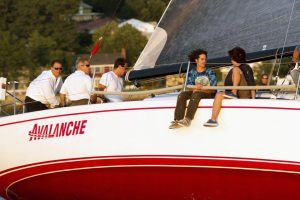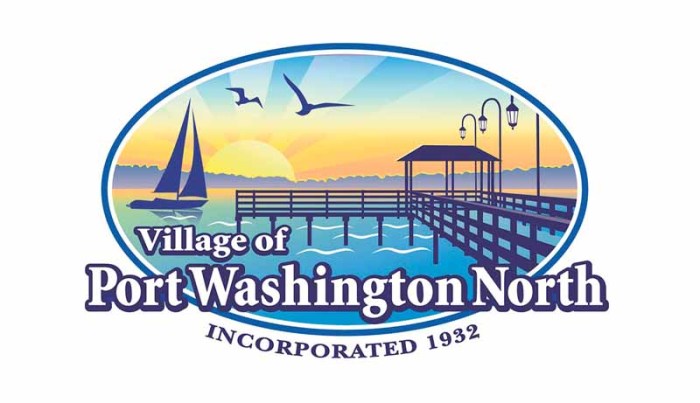Spring has finally arrived. And with it, thoughts of cleaning up after the long, harsh winter are beginning to take root. For boaters this means tackling the long “to-do list,” so that the boat can be launched and ready to go. What does not come to mind so readily is thinking abo ut Manhasset Bay and Long Island Sound, the very water that allows us to enjoy summer days out cruising, racing, fishing and trips over to the north side of the Sound. So maybe spring is a good time to start thinking of cleaning up our water.
ut Manhasset Bay and Long Island Sound, the very water that allows us to enjoy summer days out cruising, racing, fishing and trips over to the north side of the Sound. So maybe spring is a good time to start thinking of cleaning up our water.
“Sailors for the Sea is a leading conservation organization that engages, educates, inspires and activates the sailing and boating community toward healing the ocean. They are a movement and pragmatic voice for action that offers boaters tangible opportunities to create a legacy and make a difference. Since its start in 2004 by lifelong friends and sailors David Rockefeller, Jr. and David Treadway, Sailors for the Sea has been harnessing the wind in the collective sail of ocean conservation. As a result, one by one, boaters are becoming catalysts for change,” according to their website.
They warn: “it’s clear that the ocean is in crisis. Environmental challenges like plastic waste, acidification, climate change and toxic chemicals are not only threatening marine life, but also our health—and the health of our children and the planet for generations to come. The time for action is now. Our high-impact, results oriented programs are at the helm of hundreds of regattas, thousands of classrooms, and in the hearts and minds of millions. We translate the language of ocean conservation into tangible actions so that our global community can create a powerful sea change—one that is the most significant environmental action by the boating community. Ever.”
They have a program called Clean Regattas, which is the world’s only sustainability certification system for water-based events. It is a combination of education and action. Over 650 Clean Regattas have been certified, which is a big deal, as 264,000 sailors have participated in these regattas.
The people at Sailors for the Sea have thought of everything. For example, to start the process toward hosting a Clean Regatta, the first step is to review the Clean Regatta Best Practices, which is a long checklist that regatta chairs can use to pick and choose what items are feasible at their location. Some of the items on the list include good waste management, water bottle reduction, water refilling stations, and recycling. Once the commitment is made to have a clean regatta, the next step is to register the event with Sailors for the Sea to receive a Clean Regattas Toolkit. There are six steps in total and the folks at Sailors for the Sea are with you every step of the way.
There is also a Clean Boating Guide designed specifically for recreational boaters and the cruising community. It offers eco-friendly tips, resources and information for fun, meaningful green boating. Suggestions include: helping to mitigate the risk of overboard discharge from marine heads, oils and fuel spills, using non-toxic cleaning products that are good for the boat and the environment and not buying copper bottom paints that leach toxic chemicals into the water.
Recently Sailors for the Sea released information about Ocean Watch, a monthly article series that interprets complex ocean health and regulatory issues by outlining what these topics mean to the boating community. The monthly also gives concrete actions everyone can take to make a difference. Authors include Dr. Larry McKinney, director of the Harte Research Institute at Texas A & M University in Corpus Christi, Sandra Whitehouse, PhD, Senior Policy Advisor at Ocean Conservancy, and Jennifer R. Nolan, author and passionate conservationist with photographs by award-winning underwater photographer Jim Abernethy and many more. “It is really spectacular to see this superb set of articles gathered together to educate boaters about the need to protect the ocean,” said Dr. Larry McKinney.
Ocean Watch magazine features 12 important articles dedicated to telling the story of ocean health and inspiring action with vibrant images of sea creatures, research and ocean pollution. A “take action” section, which accompanies each article, allows readers to translate their knowledge into tangible steps that will protect the ocean. “I am thrilled to release the first edition of Ocean Watch magazine”, noted R. Mark Davis, president of Sailors for the Sea. “We have been honored to work with a great depth of talented authors and we are proud to showcase their work in this stunning publication.” To view an interactive, online version of the magazine, go to www.issuu.com/sailorsforthesea/docs/ocean_watch_magazine_2014.
Sailors for the Sea is proud of the work it is doing to change lives, protect the ocean, and help build a community of ocean stewards. They offers tools, education and inspiration so that boaters may become change agents. With its help, each and every one of us can help improve and preserve the water around us. It is not only the sailors and boaters who can help, but everyone who has walked along the shore and enjoyed the beautiful views of Manhasset Bay and Long Island Sound.
Sailors for the Sea is headquartered in Newport, Rhode Island. www.sailorsforthesea.org.





























